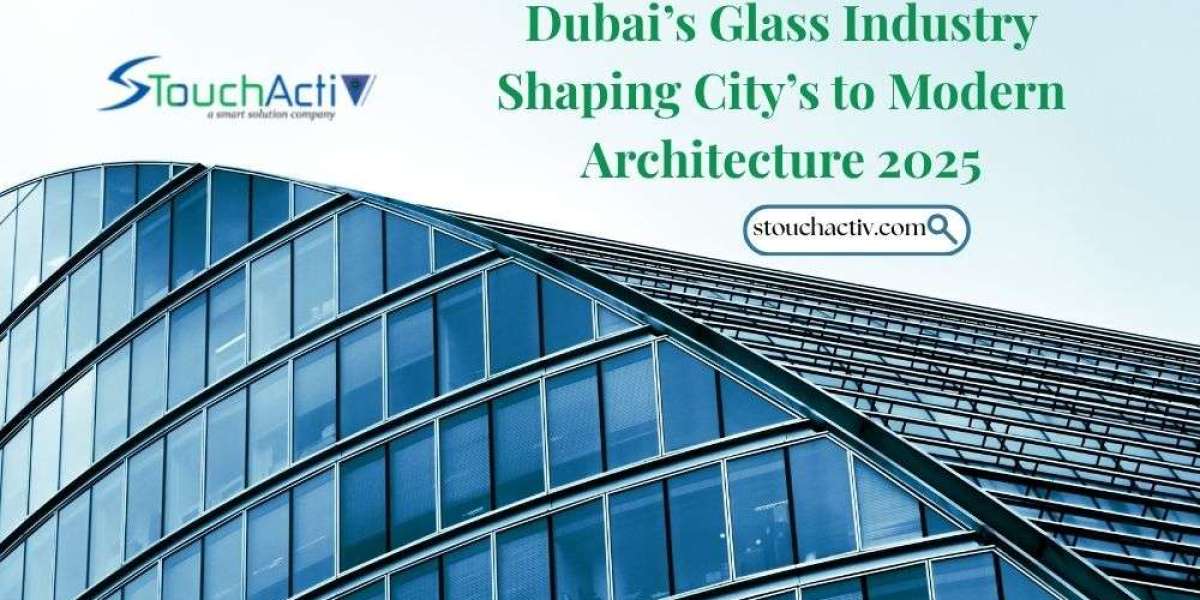Introduction
Dubai has always been a city that pushes the boundaries of architecture. From the shimmering Burj Khalifa to the ultra-modern Museum of the Future, glass plays a defining role in the city’s skyline. In 2025, the Dubai glass industry continues to evolve—combining innovation, sustainability, and design excellence. With the demand for smart glass, energy-efficient façades, and creative interiors on the rise, Dubai stands as a global hub for glass technology and manufacturing.
The Rise of Architectural Glass in Dubai
The transformation of Dubai’s architecture over the last decade has been fueled by glass innovation. Builders and designers are no longer using glass just for transparency or light; they use it to express creativity, sustainability, and intelligence.
Architectural glass solutions such as curtain walls, structural glazing, balustrades, skylights, and glass façades have redefined what modern buildings can look like. High-rise towers, hotels, and luxury villas increasingly rely on smart glass and double-glazed units (DGU) to improve comfort and efficiency.
The government’s strong commitment to sustainability—through initiatives like Dubai’s Green Building Regulations—has accelerated the adoption of energy-efficient and solar-control glass. These products help reduce heat gain, lower cooling costs, and enhance environmental performance.
Smart Glass: The Future of Transparency
The biggest innovation shaping the Dubai glass industry in 2025 is Smart Glass, also known as Switchable Glass or PDLC Film Glass. These intelligent solutions allow users to control transparency at the flick of a switch, offering instant privacy without curtains or blinds.
Used in luxury offices, hotels, healthcare centers, and homes, Smart Glass is revolutionizing interior design. Architects in Dubai prefer it for its clean, futuristic look and ability to blend privacy with natural light.
Key Advantages of Smart Glass in Dubai Architecture:
Feature | Benefit |
Instant Privacy | Switches from clear to opaque in seconds |
Energy Efficiency | Reduces cooling and lighting costs |
Aesthetic Appeal | Sleek, modern appearance for interiors |
UV & Glare Control | Protects furnishings and comfort |
Versatility | Used in partitions, façades, doors, and windows |
With rapid advancements and affordable installation costs, Smart Glass is becoming a mainstream material in Dubai’s commercial and residential projects.
Local Manufacturing Strength and Innovation
Dubai’s commitment to becoming self-sufficient in construction materials has led to a strong local glass manufacturing base. Today, leading glass factories and processors in Dubai produce everything from tempered, laminated, insulated, and fire-rated glass to decorative and digital-printed glass.
Local suppliers invest heavily in advanced machinery, CNC cutting, edge polishing, and coating technologies to meet international standards. Many are also embracing AI and automation to enhance precision and speed.
These factories not only supply domestic demand but also export to the GCC and Africa—making Dubai a major regional hub for glass production and export.
Glass and Dubai’s Vision for Sustainable Architecture
Sustainability remains a cornerstone of Dubai’s urban vision. By 2025, every new building in the city is expected to meet strict green and energy-saving standards. Glass plays a central role in achieving these targets.
Developers are increasingly opting for:
- Low-E (Low Emissivity) glass to reduce heat transfer.
- Solar-reflective coatings for comfort and daylight optimization.
- Insulated glass units that maintain indoor climate balance.
- Recyclable and locally sourced glass to reduce carbon footprint.
Through these innovations, the Dubai glass industry contributes to the city’s goal of becoming one of the world’s most sustainable metropolises.
Trends Driving the Dubai Glass Industry in 2025
- Digital Printing on Glass: Custom designs and patterns for façades and interiors.
- Curved and 3D Glass: Used in luxury villas, malls, and futuristic structures.
- Smart & Switchable Glass Integration: Common in offices and hospitality.
- Safety and Fire-Rated Glass: Essential for high-rise and commercial projects.
- Acoustic Glass: Reducing noise in urban environments for enhanced comfort.
These trends highlight Dubai’s shift from conventional building materials to high-performance, multifunctional glass that complements its architectural identity.
Dubai: A Global Example in Glass Innovation
International architects look to Dubai as a living showcase of glass innovation. Projects like The Palm Tower, Museum of the Future, and Dubai Frame demonstrate how design and engineering can merge through advanced glazing technologies.
Glass isn’t just a material here—it’s a statement of luxury, progress, and sustainability. As developers continue to invest in smart urban spaces, the Dubai glass industry will remain a key pillar in defining the city’s modern skyline.
Why Glass Industry Matters to Dubai’s Growth
- Economic Contribution: The glass sector supports construction, real estate, and exports.
- Job Creation: Thousands of professionals work in fabrication, installation, and design.
- Technological Leadership: Dubai is leading the Middle East in smart glass adoption.
- Global Reputation: The city sets architectural benchmarks for the world to follow.
From energy efficiency to design flexibility, the glass industry’s progress mirrors Dubai’s transformation into a futuristic and eco-conscious metropolis.
Conclusion
The Dubai glass industry in 2025 stands as a model of innovation, sustainability, and creativity. It has redefined how architects and designers envision buildings—not just as structures, but as intelligent, living spaces. With ongoing investments, smart technologies, and sustainable goals, Dubai’s architecture will continue to shine—literally and figuratively—through its glass.
Frequently Asked Questions (FAQ)
- What are the main types of glass used in Dubai’s architecture?
Tempered, laminated, insulated, Low-E, and Smart Glass are the most commonly used in Dubai’s modern construction. - Why is Smart Glass popular in Dubai?
Because it provides instant privacy, energy efficiency, and a clean, futuristic look suitable for luxury interiors. - Is Dubai producing its own architectural glass?
Yes, many glass factories in Dubai manufacture and process glass locally to meet construction demands. - How does the glass industry support sustainability in Dubai?
By using energy-efficient, recyclable, and solar-control glass to reduce energy consumption and carbon emissions. - What’s the future of the Dubai glass industry?
Continuous growth through innovation, smart technology integration, and expanding exports across the GCC and beyond.



